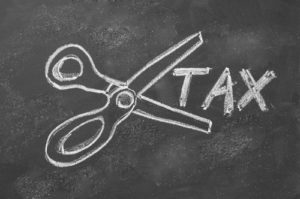Clarification of Tax Treatment of Covered Loan Forgiveness

Clarification of Tax Treatment of Covered Loan Forgiveness
CARES Act Sec. 1102 provides that a recipient of a PPP loan may use the loan proceeds to pay payroll costs, certain employee benefits relating to healthcare, interest on mortgage obligations, rent, utilities, and interest on any other existing debt obligations. If a PPP loan recipient uses their PPP loan to pay those costs, they can have their loan forgiven in an amount equal to those costs. PPP loan forgiveness doesn’t give rise to taxable income and the Code generally doesn’t allow a taxpayer to deduct expenses that are paid with tax exempt income.
New law
COVIDTRA clarifies taxpayers whose PPP loans are forgiven are allowed deductions for otherwise deductible expenses paid with the proceeds of a PPP loan, and that the tax basis and other attributes of the borrower’s assets will not be reduced as a result of the loan forgiveness. (CARES Act section 1102 as clarified by COVIDTRA Sec. 276)
Effective date
This provision is effective as of the date of enactment of the CARES Act.
AS of December 21, 2020, more details of recent COVID-19 tax related developments: https://rules.house.gov/sites/democrats.rules.house.gov/files/BILLS-116HR133SA-RCP-116-68.pdf
Other points of interests:
Business Meals Fully Deductible in 2021 and 2022
Employee Retention Tax Credit and Paid Sick/Family Leave Credits
Charitable Contributions
Extension of Certain Deferred Payroll Taxes
From the FTB site 03/23/2022:
On September 9, 2020, Assembly Bill (AB) 1577 (Coronavirus Aid, Relief, and Economic Security (CARES) Act Conformity) was enacted which allowed an income exclusion for tax years beginning on or after January 1, 2020, for forgiven PPP loans.
On April 29, 2021, AB 80 (Consolidated Appropriations Act (CAA) Conformity) was enacted which allowed the additional income exclusion for second draw PPP loans and Economic Injury Disaster Loan (EIDL) advance grants and allowed the deduction of expenses, basis adjustments, and tax attribution adjustments for qualifying taxpayers, for tax years beginning on or after January 1, 2019.
The American Rescue Plan Act (ARPA) (Public Law 117-2) was enacted on March 11, 2021. The ARPA expanded the PPP to include certain nonprofit entities and certain internet publishing organizations. California law does not conform to this expansion of PPP eligibility.
The Paycheck Protection Program Extension Act (PPPEA) (Public Law 117-6) was enacted on March 30, 2021, and extended the covered period of the PPP from March 31, 2021, through June 30, 2021. California law does not conform to this extension and does not allow an exclusion from income for PPP loans made after March 31, 2021.
On February 9, 2022, Senate Bill (SB) 113 (Economic Relief) was enacted to allow an income exclusion for Shuttered Venue Operator (SVO) grants provided under CAA for tax years beginning on or after January 1, 2019 and for Restaurant Revitalization Fund (RRF) grants provided under ARPA for taxable years beginning on or after January 1, 2020. SB 113 also allows the deduction of expenses, basis adjustments, and tax attribution adjustments for qualifying taxpayers for SVO and RRF grants.
Income exclusion
For California purposes, forgiven PPP loans, SVO grants, and RRF grants are excluded from gross income. However, this does not include PPP loans forgiven under the PPPEA.
Deductions and other adjustments
AB 80
To qualify for expense deductions, basis adjustments, and lack of reduction of tax attributes related to AB 80, you must meet the following qualifications.
- Your business cannot be publicly traded
- You meet the 25% gross receipts reduction qualifications
If your forgiven loan relates to an EIDL Grant or Targeted EIDL Advance, you are not required to meet these qualifications to deduct expenses.
SB 113
To qualify for expense deductions, basis adjustments, and lack of reduction of tax attributes related to an SOV grant under SB 113, you must meet the following qualifications.
- Your business cannot be publicly traded.
- You meet the 25% gross receipts reduction qualifications.
If your forgiven loan relates to an RRF, you are not required to meet these qualifications to deduct expenses.
The treatment of deductions, basis, and tax attributes for California income tax purposes may differ from the federal income tax treatment. For federal qualifications regarding income tax treatment, visit Coronavirus Tax Relief for Businesses and Tax-Exempt Entities.
25% reduction from gross receipts
California conforms to the federal gross receipts test requiring a 25% or greater reduction in gross receipts and will therefore follow the rationale of this related federal guidance.
For additional information, visit Section 311 of the CAA, 2021, Revenue and Taxation Code (RTC) section 17131.8(g)(3)), and Small Business Administration (SBA) guidance.
For additional information on the RRF grants, visit Section 5003 of the ARPA, RTC 17158.2(a), and SBA guidance.

We hope you found this short article about recent tax clarifications of tax treatment and the PPP loan forgiveness program helpful. For more information, talk to your tax advisor to see what else you can or should do to protect yourself and take full advantage of the unique opportunities provided by PPP loans. If you have additional questions or need expert tax or family office advice that’s refreshingly objective (we never sell investments), please contact us at Info@GROCO.com or visit www.GROCO.com. Unfortunately, we no longer give advice to other tax professionals gratis.

A proud sponsor of the American Dreams Show. Find your path in life to success and happiness…

Will the Higher Standard Deduction Really Pay Off at Tax Time?
Will the Higher Standard Deduction Really Pay Off at Tax Time? One of the biggest changes created by the Tax Cut and Jobs Act is the increase in the Standard Deduction. Essentially the standard deduction doubled for all types of filers. In 2017, if you were a single filer (or married filing separately) your standard…
What’s Really Costing American Corporations?
What’s Really Costing American Corporations? The state of American business is always in flux. The economy is generally trending upward and right now many large corporations are enjoying success. Of course, not everything is perfect. There is always room for improvement. So what are the keys to even greater success? One of the biggest obstacles…
IRS Has Good News for Real Estate Brokers
IRS Has Good News for Real Estate Brokers If you’re a real estate broker then you might be in for some very good news from the IRS. Yes, it’s rare that the IRS has good news for anyone. However, in this case, the news really is good, as long as you meet the requirements. The…
Consider the Taxes if You’re Buying in the Big Apple
Consider the Taxes if You’re Buying in the Big Apple The draw of the Big Apple: there’s nothing quite like it. There’s just something magical about the bright lights of New York City. But, unless you’re prepared to pay for it, then the city so nice they named it twice could be just a dream.…




